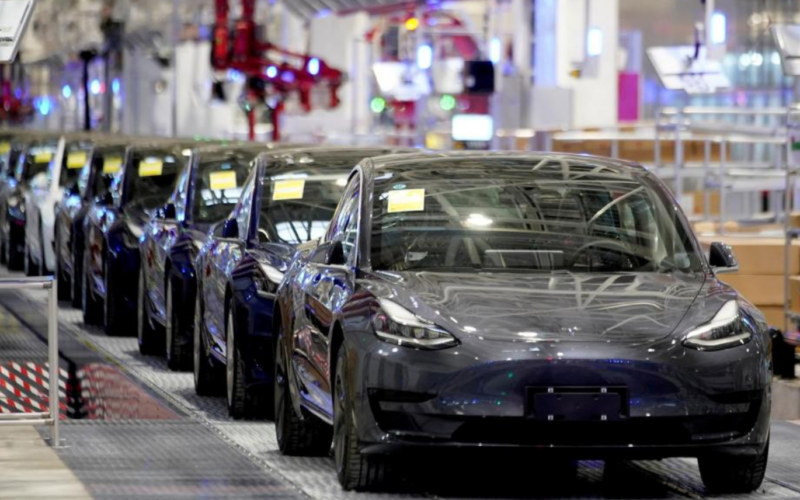Electric car giant Tesla has announced a temporary pause in its production at the factory near Berlin, citing disruptions caused by attacks on ships in the Red Sea. The delays, attributed to Iranian-backed Houthi militants, have impacted shipping routes, forcing Tesla to suspend most production from January 29 to February 11. The move comes as global trade faces increasing challenges due to the important Red Sea shipping route’s disturbances.
Tesla’s factory near Berlin is set to experience a temporary production halt lasting two weeks, starting from January 29 and extending until February 11. The company cites delays in parts deliveries caused by attacks on ships in the Red Sea, disrupting its supply chain. The pause is anticipated to result in the potential non-production of approximately 5,000 to 7,000 cars. This development adds to the challenges faced by Tesla in meeting its production targets, contributing to the ongoing competitive landscape in the electric vehicle market.
The disruptions in the Red Sea, a vital shipping route accounting for about 12% of global maritime traffic, are causing ripple effects across global trade. Shipping delays have compelled companies to opt for alternative routes, such as the longer journey around the southern tip of Africa. The shift in transportation routes is impacting production chains and contributing to a 1.3% drop in global trade in December. The heightened tensions in the Red Sea, particularly the recent air and missile strikes by the US and UK in Houthi-controlled areas of Yemen, further complicate the situation and raise concerns about broader implications for global trade.
Tesla, currently the second-largest seller of electric cars globally, faces challenges not only from the Red Sea disruptions but also from fierce competition, particularly from Chinese manufacturers. Rivalry in the electric vehicle market has intensified, with Chinese automaker BYD surpassing Tesla as the world’s top-selling electric carmaker last month. The competition is fueled by ongoing delays and challenges, such as those faced by Tesla in its Berlin factory, posing a fresh blow to production targets and market standing.
The disruptions in the Red Sea are not limited to the automotive industry. A report from a German economic institute reveals a 60% decrease in daily container traffic through the Red Sea, from 500,000 in November to 200,000 last month. Shipping company Maersk, responsible for 20% of global trade, has rerouted its vessels around Africa due to the disturbances, with potential repercussions for inflation and availability across various sectors. The global economy faces uncertainties as disruptions persist, potentially leading to inflationary pressures.
Tesla’s decision to pause production in its German factory highlights the broader challenges faced by global trade due to disruptions in the Red Sea shipping route. The escalating tensions in the region, coupled with the impact on transportation routes, present a complex scenario for industries worldwide. As geopolitical uncertainties unfold, the automotive sector, in particular, grapples with supply chain interruptions, adding to the complexities of an already competitive market. The repercussions of the Red Sea crisis extend beyond individual industries, warranting a closer examination of the broader economic impacts and the potential for a prolonged and widespread global trade disruption.








